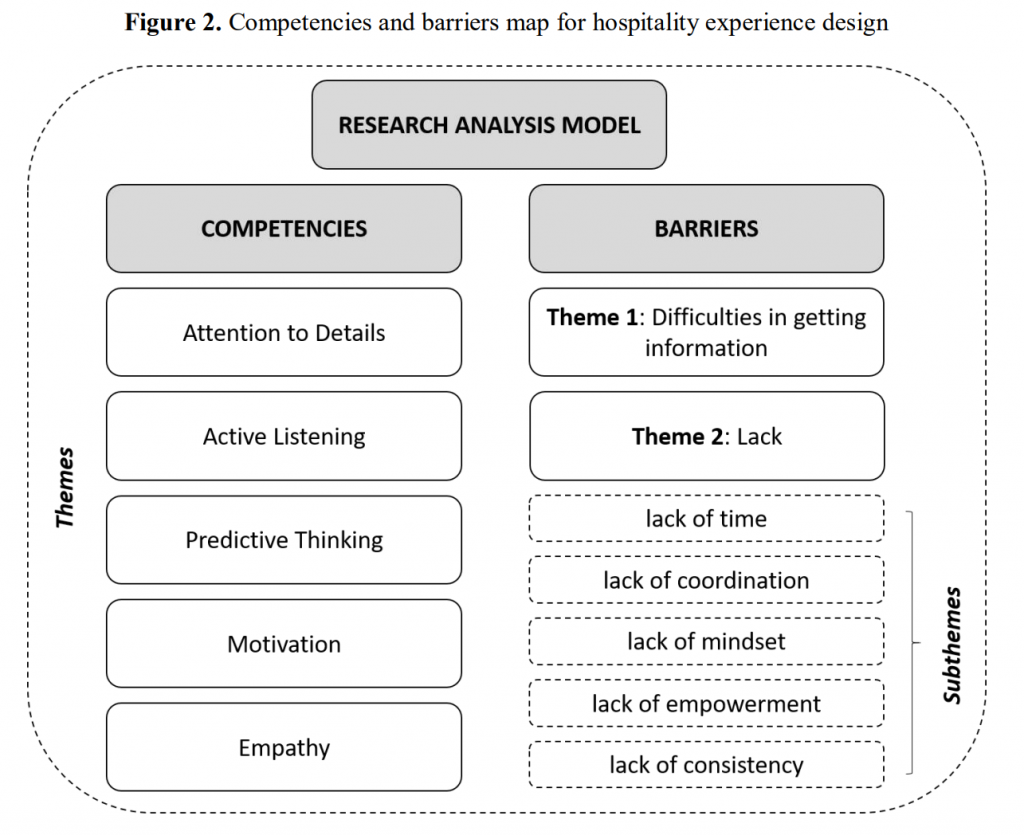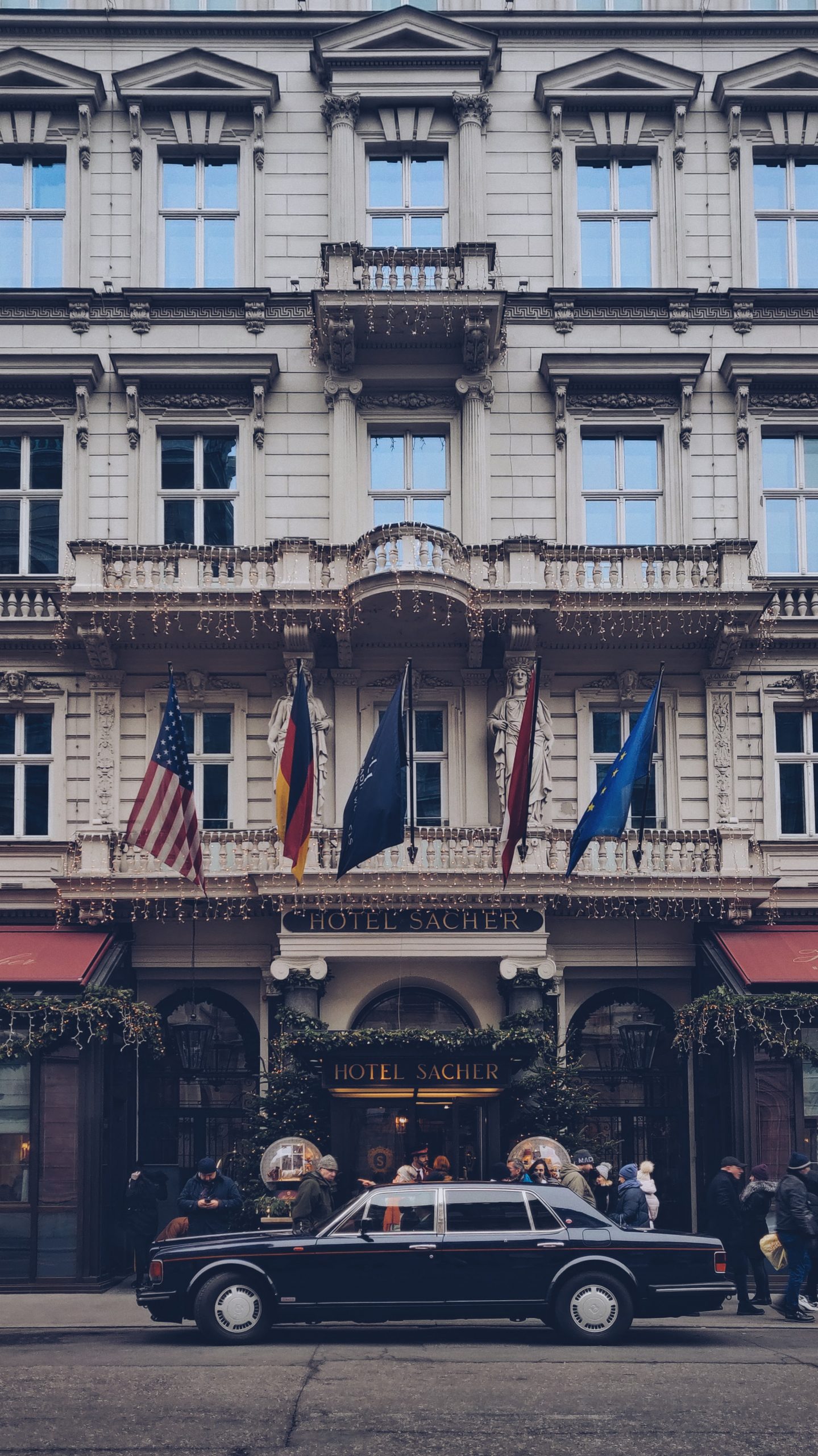Whenever we set off on our holidays, we are excited! Of course, we are, because we are going to a new place, staying in a new temporary accommodation and are in for new experiences. But what or who creates can create these experiences for us? In the existing service offerings of the hospitality context, employees and guests play an essential co-creative role in designing guest experiences. This study aimed to get a better understanding on the part of employees and how they can contribute to the creation of memorable experiences for their guests
An evolving hospitality industry
Over the last few years, products and services have received less attention because of the rise in popularity of experiences leading potentially to human transformations. Instead of a commoditised offer, hospitality providers should customise their offer if they want to keep up with their competitors. This implies creating memorable services that are adjusted to their customers. This is, however, a dynamic co-creative process in which both employees and guests are involved. Through well-prepared, personal experiences, guests may be affected emotionally leading to lasting memories which they link to their stay. This, in turn, can lead to an improved customer-brand relationship, in which customers are more willing to communicate their preferences which can further help in the customisation of the hospitality offer. All of this starts with the employee and their emotional and functional connection with the consumers. Therefore this study intended to pinpoint exactly those skills that focus on the creation of memorable experiences and also encountered barriers to experience design within the hospitality industry.
Methodology
Through a qualitative case study approach, the Sacher Hotel Salzburg was selected for this research. By applying a two-step approach, the researchers first could get an insight into the corporate culture at Sacher Hotel through a case study methodology. In the second step, in-depth interviews with employees were conducted. This led to a wide variety of interviewees including front- and backstage employees ranging from general management, quality assurance, concierge, experience, reservation, events, front office, and human resources to guest services. This led to the creation of the competencies and barriers map for hospitality experience design.
Results
Based on the content analysis, the study has put forward results as summarised in two main themes: competencies and barriers. Attention to detail, active listening, predictive thinking, motivation and empathy came forward as subthemes within the main theme of competencies for employees and their role as an experience designers. On the other hand, employees tend to experience challenges in their work as experience designers in the fields of information access and a lack of time, coordination, mindset, empowerment and consistency (See Figure 2).

Competencies
Firstly, attention to detail is mentioned as a sub-theme. This includes environmental scanning and the ability to put yourself in guests’ shoes when collecting guest information. Moreover, through active and attentive listening during interaction with guests, not only attention to detail could be achieved important information regarding the guests’ preferences could simultaneously be revealed. Furthermore, based on the existing knowledge about the guests, predictive thinking on account of the employee is an important skill in designing experiences. How will an experience impact the customer? What would be the desired outcome? These are important questions to consider in the predictive thinking phase. Furthermore, employees’ motivation and empathy for guests are important for experience design. Guests will notice the difference between a passionate and motivated employee and an employee that can’t wait for her/his shift to be over. If you want to win over the guests, it should be your prime purpose, your goal, rather than an added benefit. But in order to win over the guests, you need to be able to put yourself in their shoes and take decisions based on these insights. Although this trait is not always trained, it is a critical assessment criterion during the hiring process. In addition, an encouraging and open corporate culture could also add to the development of employee motivation and empathy towards guests.
Barriers
On the other side, employees may have all competencies in place but there may be barriers that keep them from creating memorable experiences. Firstly, the challenge in getting information is put forward. An interviewee explained, “To find the right thing, it is very hard to find right information about the guest, not all the information that we will collect, is necessary or important, or you can create good guest experience with it.”. This implies that because of only short interactions, employees often don’t have the chance to get to know the employee and take note of cues for customised experiences.
In addition, the theme ‘lack’ was identified across various topics. Because of a lack of time because of their operating tasks, employees experience difficulties finding time to create special experiences for the guests. This is closely linked to the ‘lack of coordination’ theme. This theme explains that employees at times feel a lack of guidance and coordination from a person in charge. Moreover, there is a lack of experience mindset which can be explained as the ability to think outside of the box, desire to create a special experience, motivation to invest time, money and energy in their role as experience designer. Without a common motivation and mindset, it is difficult to create experiences. This finding also goes hand in hand with the lack of empowerment – as employees may not feel it is their place or allowed to focus on the guest experience next to their regular tasks. Moreover, especially bureaucratic systems could hinder the empowerment of employees to design experiences. Finally, the lack of consistency in quality standards for returning guests, whose preferences are known, versus new guests or short-stay guests whose preferences are still unknown. In addition, the variation of employees on service at a particular moment also adds to the lack of consistency.
Conclusion
Every hospitality employee can be an experience designer
That is, regardless of their role, in which department they work or their educational background. Building on this notion, this study explored how guest experiences could be intentionally created by hospitality employees. With this knowledge, the study contributes to existing employee recruitment criteria and employee training programmes. Moreover, by identifying barriers, hotel managers could see to eliminate these obstacles and encourage employees to design experiences.
Are you ready to trigger your inner experience designer – take your chance, and dive in!
Cite as:
Neuhofer, B. and Gharibyan, T. (2021). Every Employee is an Experience Designer: Competencies and Barriers in Hospitality Experience Design. Proceedings of APacCHRIE 2021 Conference, Singapore, pp. 598-609.
Read the full article here:
APacCHRIE 2021 Conference Proceedings Link
